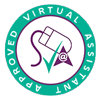How to Manage an Effective Remote Team
As we adopt the hybrid working model it is most likely here to stay, so rather than resisting the tide of change, it’s best to embrace and employ the following tools to effectively manage your team.
Flexible working certainly has its advantages, but it comes with many challenges, too. Whether you’re setting up a small business during the pandemic or simply shifting to remote working, we investigate the tools you need to virtually manage a successful team.
Equipment
Ordinarily, you would provide in-office employees with the necessary hardware to use, therefore it is essential that you do the same when establishing a remote team. In addition to the obvious items such as laptops and mobiles, your employee may also need devices such as printers, scanners or landline phones. These devices are an essential part of their job and so it is your responsibility to provide and maintain them.
Secure VPN
A global shift to remote working has seen a dramatic rise in cybercrime. Your business is at more risk of an attack if employees are using home networks to access company data. Public Wi-Fi or home network security is often overlooked and less secure, this means it is far easier for hackers to infiltrate and threaten your company, so be sure to provide your remote teams with a virtual private network (VPN) to keep your business data safe. A VPN creates a secure connection and encrypts traffic, essentially creating a private “tunnel” to protect your data.
Cloud Software
Using a cloud-based product suite which can include Outlook, PowerPoint, Word, Excel and Teams are the office staples and are basic essential for any remote business to function efficiently. The benefits of a cloud-based suite are that it allows for closer collaboration and more straightforward communication with the wider team and yourself. Best of all, it allows employees to work from anywhere, offering extra convenience and flexibility knowing shared data can be remotely accessed.
Project Management Software
Implementing project management software ensures clear lines of communication between all employees on one dashboard and enables the whole team to stay updated on the progress of a project. This type of software makes it far easier to assign projects, manage deadlines and most importantly when working remotely, maintain clear communication. Popular choices include:
- Basecamp
- Asana
- Trello
- Monday.com
- Teamwork Projects
A Dedicated Communication Platform
Using a dedicated business communication platform such as Slack or Microsoft Teams allow employees to send messages to each other instantaneously. Whilst project management software is excellent for managing and monitoring tasks but it’s worth using a separate communication platform that is optimised for messaging allowing you to create dedicated group chats and channels to allow your teams to be easily reachable and stay in contact with one another throughout the day.
A Video Conferencing Platform
Due to the rise of remote working and the growing global workforce, virtual meetings and video conferences are an essential part of creating a strong and effective remote team. Hosting regular meetings, virtually, allows the team to stay in regular contact. Remote working can be isolating and lonely being out of the loop can create invisible barriers, so it’s worth using video conferencing software regularly to ensure that everyone feels valued and involved.
Popular video conferencing platforms include:
- Zoom
- GoogleMeet
- ClickMeeting
- UberConference
Summary
Ensuring that your team is able to communicate and collaborate effectively will encourage maximum productivity and more importantly high morale. The above tools can also help to ensure that individual team members feel informed, involved and valued. Transparency and strong communication are the keys to running a successful remote team, so by utilising effective tools you can ensure that your business runs like a well-oiled machine.

 Canva
Canva
 Canva
Canva 

 Canva
Canva 



 Canva
Canva Canva
Canva